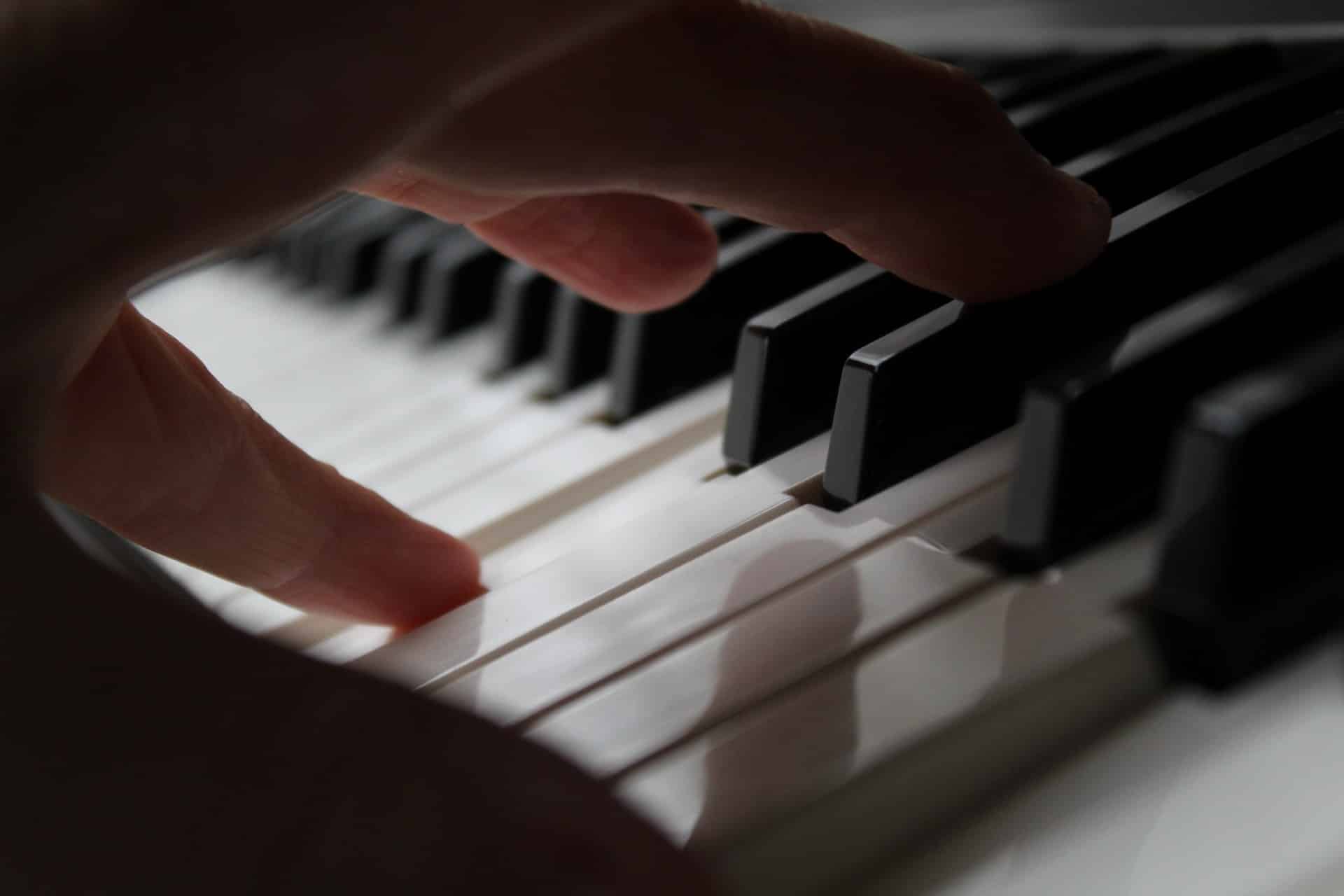Some people take up the piano for their own pleasure with no intention of making a career for themselves in music. They might not feel compelled to submit to an examination to prove their skills. However, most people who've studied the piano do want to make their living tinkling the ivories. They must undergo the Australian Music Examination Board (AMEB) certification process.
The AMEB works a bit like higher academic education. Novice piano players may earn a Preliminary certificate of achievement. As they learn more about playing the piano, students may test their proficiency in graded exams. Accomplished players may be awarded the prestigious Fellowship in Music. Most piano players aim for the Licentiate in Music (LmusA) degree. These and other programs prove that the AMEB goes beyond the established eight grades of piano mastery.
Whatever your reasons for playing the piano and your motivations for meeting the AMEB's challenge, you need to know what that challenge consists of. Or, better said: you need to know how you can prepare to meet the challenge. Naturally, you can skip grades in piano. But that places more importance on needing to know what the higher-level exams entail. Let this guide show you the steps toward successful exam completion.

Know What's Expected of You
Obviously, if you're taking the piano exam, you're expected to play the piano. Exactly what are you supposed to play, though? The AMEB provides outlines for each level of examination.

The AMEB runs roughly the same exams across all grades. You will complete a written exam over general knowledge and, in later grades, musical theory. You will also play several pieces from the board's lists of selections. After completing Grade 8, you may advance to AMEB's degree programs.
The Board's Associate in Music (AMusA) exam does not test you on musical theory. However, you'll play more than one piece suitable for the level you're testing at. You'll also need some general knowledge about piano playing. You'll answer questions like 'What musical period did Frederic Chopin help define?' and 'Who were Claude Debussy's contemporaries?'.
The LmusA exam is more intensive. You must choose your pieces from the AMEB's established lists; one each from lists A, B, C, and D. You may further choose pieces from the last three lists to meet your time requirements. You'll be quizzed on general knowledge questions as AMuseA candidates are. A passing score or better on a Grade 6 AMEB exam is a prerequisite for this certification.
Know Your Material
If you'd rather not take piano lessons online, you can still get familiar with the pieces suitable to the level you're testing at via the web. You can also get an idea of your exam's general knowledge questions. You can then study and practise them on your own.
Even before you register for your exam, you can access AMEB's trove of music selections. They forward their lists to every piano player who shows an interest in the exam. That means you'll have plenty of time to try out the pieces before deciding which ones you'll play for your exam.
You should absolutely do so. Keep in mind that the lists are roughly divided into easy, moderate and difficult pieces. You must select from them all. Beware that anything can happen, though. For instance, the examiners may reject your selection. Or you might have to play additional pieces to fulfil your time requirements.
Thus, the best idea is to prepare a double catalogue. Preferably with selections that vary in tone and composition. One that presents pieces from different musical eras. Being over-prepared has never cost anyone their victory. And, besides, you may even earn a distinction on your exam.

Find Guidance
Some piano players say that playing music, like writing, is a solitary endeavour. Anyone who's ever watched an orchestra or band perform would beg to differ. But those musicians are correct in their assessment. They play music surrounded by walls of sound generated by other musicians all playing the same piece. However, it's a fair bet that every one of those musicians is in their own bubble. How else could they be so focused and play so passionately?
What about orchestra conductors, then? They're guides. They signal different orchestra sections to start playing, ease transitions between movements and keep the tempo. You need a guide like that to shape your playing while practising for your exam.

You could ask a classmate or friend who's knowledgeable about the piano. That would be a smart move, especially if they've undergone the exam you're preparing for. Beware, though, that you might set yourself a trap by relying solely on your mates for guidance. Their knowledge of the AMEB exam is likely limited to their own experiences.
That's why it's best to engage with a professional music tutor. They have an overview of every AMEB exam's criteria. They tend to be more objective when telling you what to expect for every piano Grade assessment. Superprof piano tutors can conduct practice sessions in person or online, as you prefer. They can tell you what the examiner looks for in a performance and how to avoid mistakes that could cost you a point or more.
Hone Your Skills
By now, you're convinced that piano exams are not just about playing the piano. They're not just about musical theory or general knowledge, either. Everything from how you sit at the piano to your ability to read music comes into play.
You may impress your friends and family with a vigorous piano recital à la Little Richard or Jerry Lee Lewis. However, your AMEB examiner will not appreciate such antics. Exam candidates should keep the classic piano aesthetic in mind. That means feet on the floor, back straight, shoulders squared and head slightly inclined to read the music.
You'll be tested on how well you can read music. Depending on which level exam you're preparing for, prima vista, Latin for 'at first sight' will be a component of your exam. Thus, you should build sight-reading skills by reading pieces not included in your exam's repertoire.
Many exam candidates find the aural part of the exam the most difficult. It entails the examiner playing a melody that you must 'sing' back. Or the examiner plays a melody correctly one time and differently the next. You must identify what the change is - melodic, rhythmic, or a key change. A third variation includes the examiner playing a melody that you must describe. At the least, the tempo and key it's played in. At most, its expressive characteristics, texture and other qualities.
Find piano lessons Brisbane easily on Superprof.
How a Mock Exam Helps You Prepare
Your AMEB piano exam isn't just a matter of walking into the room, giving your name and following your examiner's instructions. Nor do you simply take your place at the piano and launch into your first piece. You must follow proper etiquette. It covers everything from placing your sheet music to introducing each selection.
Much like an actor rehearses scenes over and over again until they get everything right, you too must 'rehearse' for your ordeal. Generally speaking, exams can be nerve-wracking, especially if your entire future rests on how well you do. Thus, you need to condition yourself to the role you'll play in the examination room.

Here, your piano tutor (or practice mate) is your mock examiner. They will watch how you approach the instrument and in what order you place your sheet music. Pro tip: they should be set up in 'list' order: your piece from List A, List B and so on. Finally, take your place on the bench. Take a moment of silence, in proper posture, with your hands on your thighs.
Then, turn to face your examiner. Tell them the piece's title and who composed it. "My first piece is Clair de Lune by Claude Debussy", for example. Turn back to the piano, place your fingers on the right keys and take another second before you start to play. Introduce each selection that way before you start to play.
You could simply record your performance on your own and go over it once you've finished. Critiquing your own performance is not the best way to refine your playing. But, if no one is available, making videos of your mock exams is better than nothing. Your music tutor (or study mate) posing as your audience and recording your performance is the best way to prepare for your piano exam.
Much like you can take online piano lessons, you can stage your mock exams over the web. It's simply a matter of facing the camera instead of your tutor. Best of all, they can record your performance and give you immediate feedback.
Drilling in the exam's procedures is just as important as regular piano practice. These aesthetic components become more important depending on which piano grade and level you're testing at. As you wouldn't enter the examination room without knowing your pieces cold, also remember aesthetics.
Practice with qualified tutors in piano tutorials here on Superprof.
Summarise with AI:
















